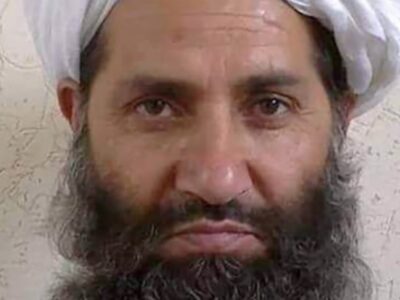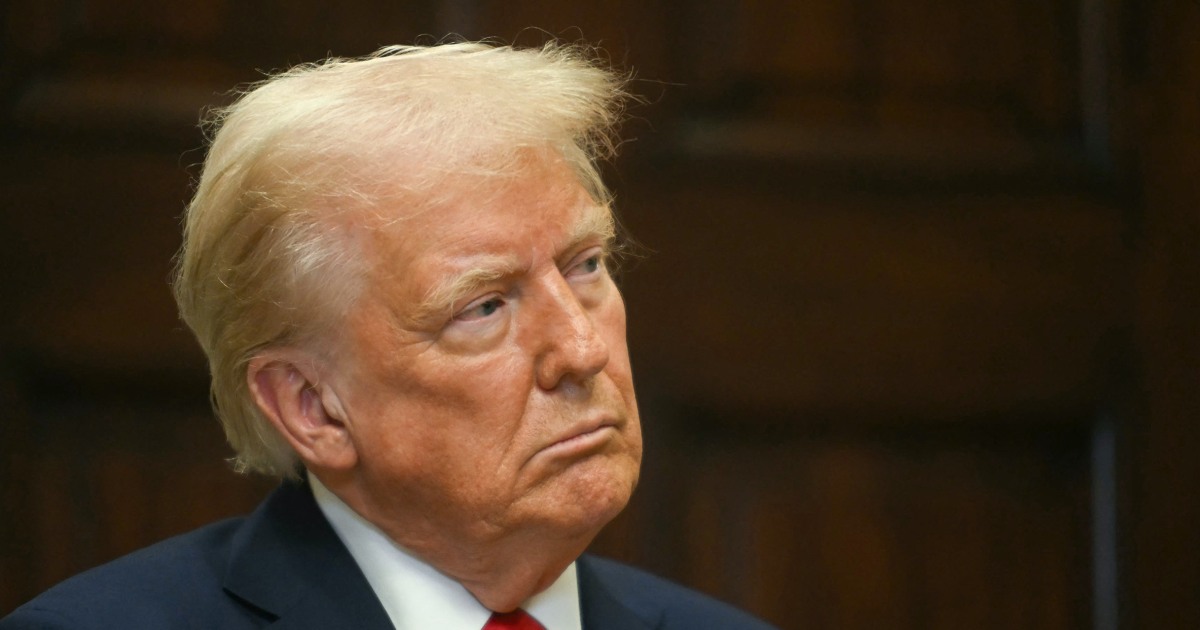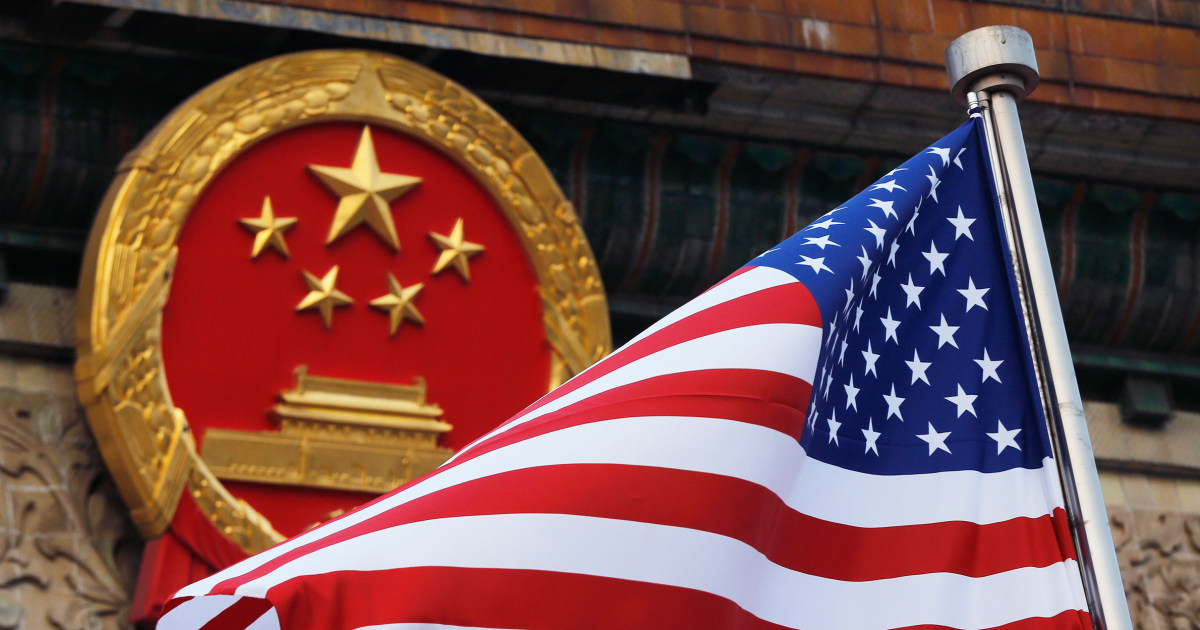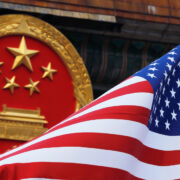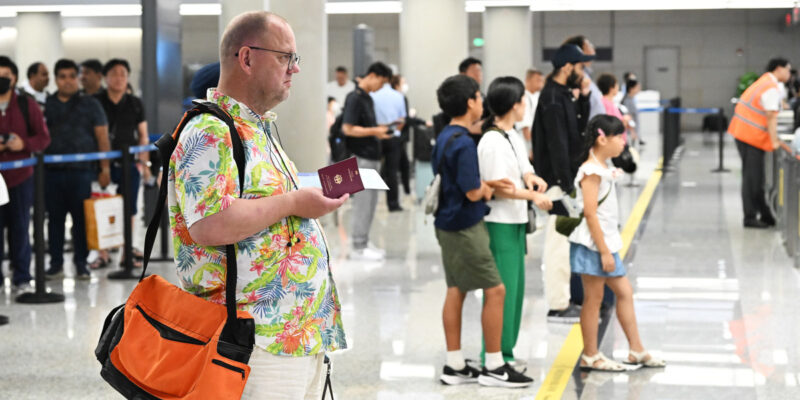
HONG KONG — The State Department eased its travel advisory for China after the release of three U.S. citizens who had been detained in the country for years.
The travel advisory for China is now at Level 2, “exercise increased caution,” putting it at the same level as France and Germany. The alert had previously been at Level 3, the second-highest level, advising Americans to reconsider travel to China partly because of “the risk of wrongful detentions,” according to the guidance issued on Wednesday
The language about wrongful detentions has been removed in the updated advisory.
The update comes after the Biden administration earlier announced that it had secured the release of three Americans who had spent years in Chinese detention: Kai Li, Mark Swidan and John Leung.
A U.S. government official said Wednesday that Li, Swidan and Leung were released in exchange for Chinese nationals detained in the U.S., including Xu Yanjun, an officer of China’s Ministry of State Security who was accused of trying to steal technology from an American aircraft engine supplier, and Ji Chaoqun, who was accused of spying for the Chinese government. Officials said the deal had been in the works for months.
Details of the swap have not been publicly confirmed by the White House. The Chinese Foreign Ministry said Thursday that three Chinese citizens “who were wrongly detained by the U.S.” had safely returned to China.
Li, 62, who is from Long Island, New York, had been detained since 2016 and was serving a 10-year sentence after being convicted of espionage, while Swidan, a Texas businessman in his 40s, had been detained since 2012 and was sentenced to death with a reprieve in 2019 after being convicted on drug-related charges. Leung, who is in his 70s and was detained in 2021, was sentenced to life in prison last year after being found guilty of espionage by a court in eastern China.
Li and Swidan had been officially designated by the State Department as “wrongfully detained.”
Their return followed the surprise release in September of American pastor David Lin, who was also considered wrongfully detained. Lin spent almost two decades in Chinese custody and had been sentenced to life in prison on charges of contract fraud.
A State Department spokesperson said Wednesday that all Americans wrongfully detained in China were now home.
According to the prisoner rights group Dui Hua Foundation, there are about 200 American detainees in China, more than in any other foreign country. They include Americans who are imprisoned as well as those who are prevented from leaving the country while a case is under investigation.
The updated China advisory also warns about “arbitrary enforcement of local laws, including in relation to exit bans.”
Beijing, which had criticized the Level 3 travel advisory as too harsh, says all cases are handled in accordance with the law.
The Chinese Foreign Ministry said Thursday that the travel advisory downgrade was “conducive to normal people-to-people exchanges” between the U.S. and China.
“We have always opposed the artificial creation of a chilling effect and hope the U.S. will continue to create more conveniences to promote cultural exchanges between the two nations,” spokesperson Mao Ning said at a regular briefing in Beijing.
Nicholas Burns, the U.S. ambassador to China, had defended the Level 3 advisory in an interview last month.
“The government of China protests against the travel advisory, but they have no grounds to do so when we have such a major problem on the ground here,” he told NBC News in Beijing.
The “reconsider travel” warning had raised concerns about the potential impact on U.S. business and tourist travel to China, as well as academic and other exchanges. There are estimated to be fewer than 1,000 Americans studying in China compared with a peak of about 15,000 a decade ago and an estimated 300,000 Chinese students currently in the U.S.
The Level 3 advisory “is a really big deal,” Austin Strange, an assistant professor of international relations at the University of Hong Kong, said earlier this month at an event hosted by the university’s Centre on Contemporary China and the World.
Chinese President Xi Jinping said last year that China was ready to invite 50,000 young Americans to study there in the next five years.
“It’s taken some steps to make that easier,” Strange said, “but it’s extremely difficult to do that with the travel advisory, because this creates huge insurance and other risks for American universities that sponsor study abroad programs.”
Some, like Peter Humphrey, a British advocate for foreigners detained in China who was imprisoned there for two years on what he says were false charges of gathering illegal information, said they opposed the travel advisory downgrade.
“There is no sign really of any increase in the safety for Americans in China,” he said.




